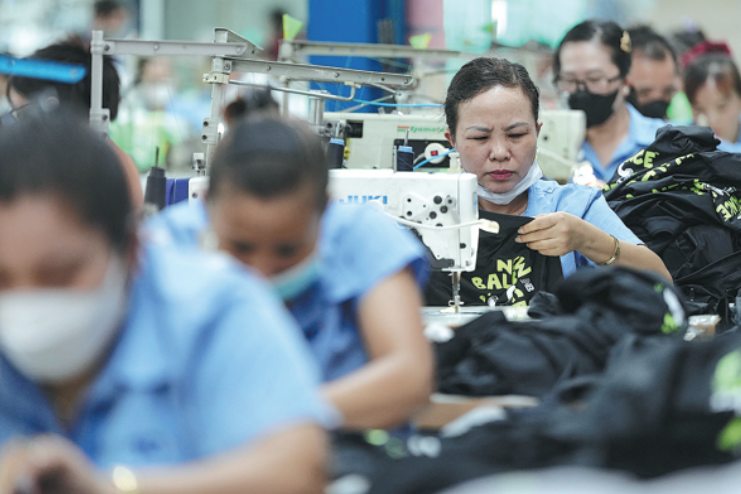Proactive policy helps woo foreign investors
Major intl firms expected to step up investment in China's high-tech and supply chain sectors on strong reform efforts


Christophe Weber, president, CEO and representative director of Takeda Pharmaceutical Co, expressed a similar opinion.
Takeda will make targeted investments in data and digital solutions in China to unleash the power of new technology for the future of healthcare, he said.
In January, the Japanese company announced the signing of an investment cooperation agreement to establish its China innovation center in Chengdu, Sichuan province. The new facility will focus on digital healthcare innovation and leverage big data and artificial intelligence technologies to develop solutions.
Eager to stabilize its appeal to global investors in 2025, China will further open up internet-related, cultural and other sectors in a well-regulated manner and expand pilot programs to open fields such as telecommunications, medical services and education, according to this year's Government Work Report.
The country will encourage foreign investors to increase reinvestment and support collaboration among upstream and downstream enterprises along industrial chains.
The report said national treatment will be ensured for foreign-funded enterprises in areas such as access to production factors, licensing, standards setting and government procurement.
Sang Baichuan, dean of the University of International Business and Economics' Institute of International Economy in Beijing, said that China enjoys a stable political, economic and social environment when compared to several other countries.
Amid mounting global economic headwinds, China's steadfast commitment to opening-up, backed by consistent government support and a more level playing field, is encouraging, Sang said.
As China's innovation capabilities grow, foreign investors are increasingly shifting from "a manufacturingonly focus to collaborative research and development", he added.
Noting that high-tech, high-efficiency and high-quality growth have become key drivers of China's economic transformation, aligning with its focus on new quality productive forces, Roland Busch, president and CEO of Siemens AG, said the country has made rapid advancements in artificial intelligence.
First introduced in 2023, new quality productive forces refer to advanced productivity freed from the traditional economic growth mode and productivity development paths.
Busch said innovations such as the open-source foundational model R1 by Chinese AI startup Deep-Seek are examples of how "China surprises us with innovations".
This momentum is not limited to the private sector.
China's centrally administered State-owned enterprises, such as State Grid Corp of China and China Mobile Ltd, have deployed AI technologies across more than 500 scenarios in key sectors such as manufacturing, smart vehicles, energy and power, according to information released by the State-owned Assets Supervision and Administration Commission of the State Council, the country's top State assets regulator, in late March.
These solutions have significantly reduced costs for central SOEs and their partners as well as improved efficiency in research and development, production and customer service.
Seeing more opportunities in areas such as healthcare, consumption, advanced manufacturing and innovation-driven development, a total of 7,574 foreign-invested enterprises were newly established in China in the first two months of this year, representing a year-on-year growth of 5.8 percent, said the Ministry of Commerce.
Investment from the United Kingdom, Germany and South Korea climbed by 87.9 percent, 54.7 percent and 45.2 percent year-on-year, respectively, in the first two months, according to the ministry.
During separate meetings with several US business leaders, including Apple CEO Tim Cook and Wendell Weeks, chairman and CEO of Corning Inc, in Beijing in March, Minister of Commerce Wang Wentao said that China's economy continues to consolidate and expand its recovery momentum even though it faces growing external uncertainties.
Wang said ongoing policy measures will strongly support economic growth. China will continue to create favorable conditions for foreign companies to increase their investments within its market.
The minister stressed that trade wars produce no winners and protectionism offers no solutions. As the world's two largest economies, stronger China-US economic and trade cooperation is consistent with economic principles, while decoupling and supply chain disruptions would harm all parties involved, he said.




































